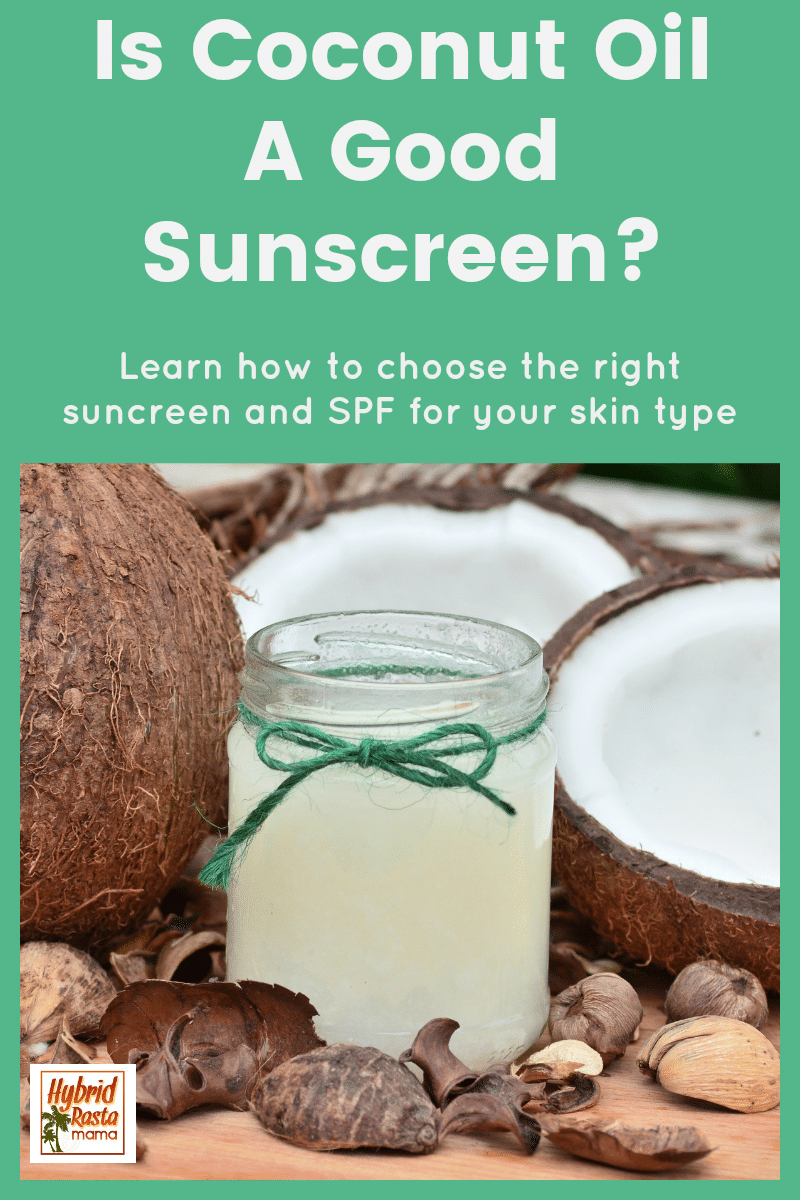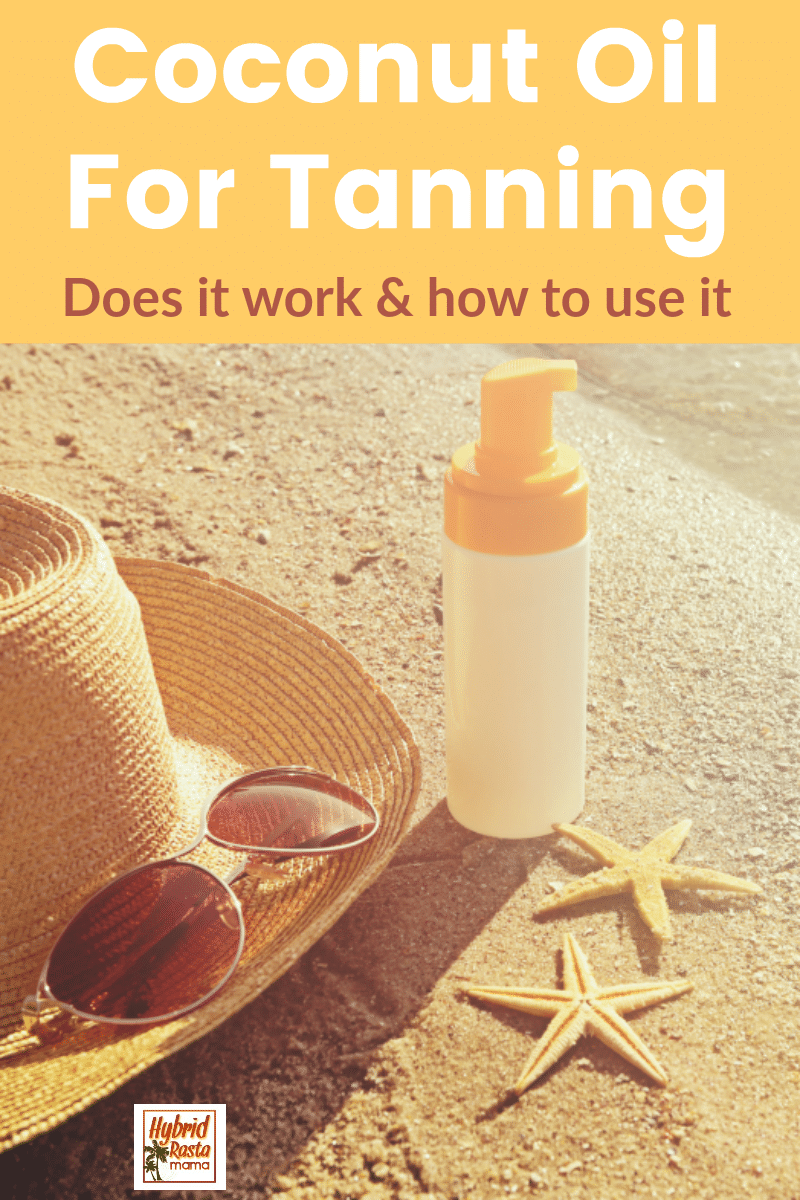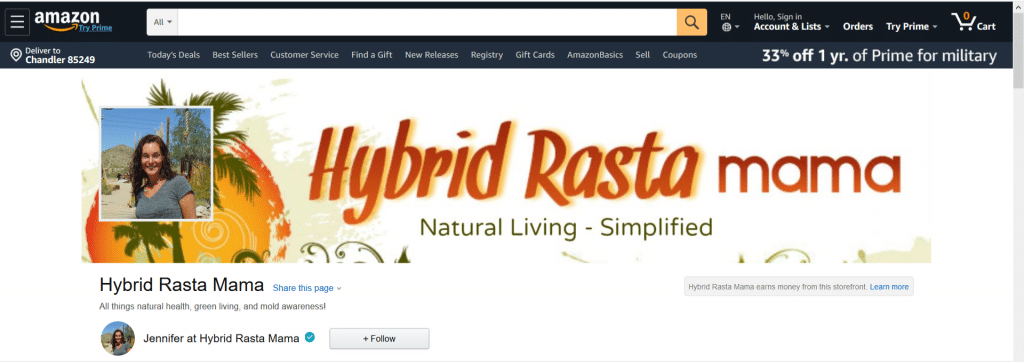It is that time of year again. Great weather, lots of sun, long days spent outdoors. This is also the time of year where everyone worries about damage to their skin from exposure to the sun’s harmful rays. Sunscreen flies off the shelves at every store. Moms slather it on their children in thick layers. And this summer, like every summer, harmful chemicals will be absorbed into millions of bodies. This is why I am tackling these important topics:
- Can you use coconut oil as a sunscreen?
- Can you use coconut oil for tanning?
- How to choose the right sunscreen for your skin type.
- The best SPF for every skin type.
Don’t we need sunscreen and don’t the risks of using it outweigh the damage from unprotected skin exposed to the sun?
There is a lot of debate about sunscreen including it’s toxicity, its effectiveness, and more recently, it’s potential to actually increase our chances of developing skin cancer. Yes, that’s right. Studies are showing that sunscreens are not all they are cracked up to be.
A very recent study concluded that the chemicals found in sunscreen seep into your bloodstream within 24 hours of application. There is a lot of debate about how bad this really is for you but I haven’t met too many chemicals I willingly allow into my bloodstream.
The other greater issue is the fact that sunscreen may indeed cause cancer while sunlight actually prevents cancer. Say what?
Elizabeth Plourde in her book Sunscreens Biohazard: Treat as Hazardous Waste accuses sunscreens of all manner of evils. She blames sunscreen on causing skin and other cancers, infertility, and destroying coral reefs which we know to be true. She even implicates sunscreens as a cause of autism. She is not the only one to raise these issues, but she has written the most comprehensive critique of sunscreens, with over 500 references.
As sunscreen relates to cancer, Elizabeth argues that if sunscreens really worked, the incidence of skin cancer would have dropped by now, as the use of sunscreens has become ubiquitous. She reports that studies have shown both increases and decreases in the incidence of skin cancer, but then she claims that there has been “a tremendous and consistent rise.”
So what should you do? Use sunscreen? Not use sunscreen?
An important factor in preventing skin damage of any kind from too much sun exposure is understanding your skin type and your resulting SPF needs.
Here is a quick breakdown:
- Type 1 skin burns and freckles but never tans. If you’re red haired with blue or gray eyes, you may fit into this category and should use a sunscreen with the highest SPF rating.
- Type 2 skin eventually develops a tan but always burns after 20 to 30 minutes in the sun. Type 2s are light blondes with blue or green eyes and should stick to a high SPF (45) sunscreen.
- Skin cancer occurrence drops drastically at Type 3 skin. People with this skin usually have dark blond or light brown hair and blue, green or brown eyes. They can develop a dark tan but will burn moderately, so should begin with a high SPF (30) sunscreen and gradually work down.
- Type 4 skin is naturally dark complected, has brown hair and eyes and always tans dark brown. Still, they can burn minimally and should start tanning with an SPF of 15 and work down.
- With Middle Eastern or Latin American ancestry, Type 5 hardly ever burns but should use a slight sunscreen of SPF 4.
- Type 6 skin, with black hair and dark skin, usually never burns but should play it safe with a sunscreen of SPF 4.
One of the most effective ways to protect yourself from sun damage is to slowly expose your skin to the sun and develop what is commonly referred to as the “base tan.” Type 1s would do this more slowly, over a longer period of time and Type 6s would need a very short amount of time to build up natural sun protection.
A good rule of thumb is to expose your skin to the sun without any sort of sunscreen for 15 minute increments every day, between the hours of 8:00am and 10:00am.
Over time, your skin will build up natural defenses. Proper clothing choices are also essential and a healthier way to protect your skin from the sun. Cotton clothing has a natural SPF of 15. There are lots of clothing options which allow for layering and increased sun protection while not being too warm or constricting. Hats are a must have year round.
Here is an expert from a report in the Canada Medical Association Journal by Dr. Ralph Douglas Wilkinson entitled, “The Xerotic Nephrologist.” This is some pretty interesting information regarding proper care of the skin before sun exposure:
Homo erectus existed for over a million years using the cool-water, no-soap system. The earth’s general fauna still use this system, which removes sweat without disturbing the waxy barrier. Housing and clothing have afforded us much protection, and our lipid layer has become somewhat expendable. Human sebum has a tendency to oxidize to a brownish hue, much like earwax. It is the “ring around the collar.” Sebum has a sunblock action estimated to be about SPF 6–8. Its removal may lead to cleaner collars, but it leaves the skin at higher risk for sun damage. The sun can cause skin damage on bald spots, which are sebum poor. The incidence of skin cancer on the head and face is high in North America. So is the use of soap and shampoo. Are they causally related? Sun damage in the child may be more severe than in the adult. Is this due in part to the absence of sebum in the preadolescent? My advice: wash with cool water, minimize or eliminate the use of soap, and wear a hat!
So after reading the links and information above you are pretty convinced that sunscreen and sunblocks are not the way to go, right? Other than gradual sun exposure and protective clothing, what can you do to protect delicate skin on those days where you will be out in the sun a lot?
Slather on the coconut oil. That’s right! Use coconut oil for sunscreen.
In case I didn’t make myself clear, get your body greased up and ready for the sun by simply using coconut oil! (If you want to use one of my favorite brands, check out my coconut oil page .
According to Dr. Bruce Fife of the Coconut Research Center, “one of the oldest uses for coconut oil is as a sun screen / suntan lotion. Islanders have been using coconut oil for this purpose for thousands of years. In the tropics where the climate is hot, islanders traditionally wore little clothing so that they could keep themselves cool. To protect themselves from the burning rays of the hot tropical sun they applied a thin layer of coconut oil over their entire body. This would protect them from sunburn, improve skin tone and help keep annoying insects away. Coconut oil was applied on the skin daily. When a mother gave birth one of the first things she would do is to rub coconut oil all over her newborn. Every day coconut oil would be used on the skin. As the children got older they applied the oil themselves. They would continue this practice throughout their lifetime up until the day they died. Many islanders, even today, carry on this practice.”
The first commercial suntan and sunscreen lotions contained coconut oil for sun protection as their primary ingredient. Even today many sun screen lotions include coconut oil in their formulas. In addition to its many other uses, coconut oil has an amazing ability to heal the skin and block the damaging effects of UV radiation from the sun. One of the reasons why it is so effective in protecting the skin is its antioxidant properties, which helps prevent burning and oxidative damage that promotes skin cancer.
The general consensus in the natural health community is to apply coconut oil liberally being mindful that it will not prevent sunburn 100%. Follow the guidelines above to build your base suntan and wear protective clothing when possible. Reapply the coconut oil after swimming or sweating. And do not sit out in full sun for 8 hours and expect to walk away with a perfect bronzed body. It won’t happen. You will get burned.
I have used coconut oil for sunscreen for the past 10 summers. I apply it before going outside to any part of me that will be exposed. I often find myself outside during “peak” hours. I hate protective clothing. So lots of me is exposed with nothing but coconut oil on. I do take care to only stay out for an hour or two and if I will be out longer, I add in carrot seed oil and red raspberry seed oil. You can learn why in my post on natural oils as sun protection. I have not burned once. I use to always burn despite how high of an SPF protection I used. Hmmmm….
Looking for more posts on sunscreen and after sun care? Check these out!
- If you want the exact recipe I use for sunscreen, check out this easy sunscreen recipe.
- If you prefer to stick with other essential oils you can try this natural sunscreen spray with essential oils.
- If you spent a little too much time out in the sun be sure to whip up a batch of my coconut oil after sun lotion. It helps reduce the damage caused from a sunburn as well as prevent peeling.
- If your face too a direct hit, be sure to immediately apply my sunburn relief face mask. It is AMAZING!
Do you use coconut oil for sun protection? If not, how do you stay burn-free naturally?










Kristen–well minded says
Wow…this is really interesting. I would think that any kind of “oil” would just help us fry up crispier. Sunscreen is major here in AZ because the sun is SO intense. I’ll definitely have to try this!
Kathy says
Ive tried pinning this article to Pinterest but I get the following message: Parameter ‘image_url’ (value http:// http://hybridrastamama.com/wp-content/uploads/2014/06/Coconut-Oil-for-Sun-protection.jpg) is not a valid URL format.
Can you fix this?
Thanks
Jennifer says
Hi Kathy. I think I fixed it. Please let me know if it still is not working. I was able to pin it successfully. 🙂
Mary Duvall says
I want to order some of the products you have talked about. Do I go to Amazon Prime to order ?
Jennifer says
All of the links to the products I use are in the post. Just click on those links and it will take you right there!
Mary Duvall says
I want to order some of the products you have talked about. Do I go to Amazon Prime to order ?
jusra says
CAN I MIX COCONUT OIL AND OLIVE OIL FOR TANNING OIL.
Jennifer says
Absolutely!